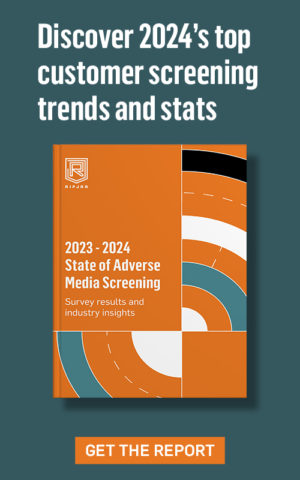The Financial Action Task Force (FATF) is an intergovernmental body dedicated to combating global financial crime and promoting international anti-money laundering (AML) and counter-financing of terrorism (CFT) standards. Unlike centralised domestic AML/CFT authorities, the FATF also fights financial crime through its Global Network, which is made up of participants from across the world.
What is the FATF Global Network?
Developed to ensure that global criminal threats are met with a global response, the FATF Global Network serves to promote the consistent worldwide application of the FATF AML/CFT Recommendations and facilitate mutual evaluations of member states. While the FATF was created in 1989, the Global Network was effectively established in 2005 with the introduction of associate membership for FATF-Style Regional Bodies (FSRB). Today, the Global Network refers to the FATF and its 206 member jurisdictions, and its 9 FSRBs (along with various FATF observer members).
The relationship between the FATF and FSRBs is governed by the High Level Principles and Objectives, which also map the operational structure of the Global Network. The Principles also set out the obligations and expectations of Network participants, and their reciprocal rights. Since the introduction of FSRB associate membership, FSRBs have worked closely with the FATF to improve the functionality of the Global Network, develop global AML/CFT standards, conduct mutual evaluations of member states, and assess the implementation of the FATF Recommendations.
The Global Network currently comprises the following participants:
Financial Action Task Force: The FATF develops and sets global AML/CFT standards and conducts mutual evaluations of members to determine whether those standards have been implemented effectively. The FATF also identifies and designates high risk jurisdictions with significant AML/CFT deficiencies. The FATF works with FSRBs in the pursuit of its global AML/CFT objectives.
APG: The Asia/Pacific Group on Money Laundering is an FSRB dedicated to ensuring the adoption, implementation, and enforcement of AML/CFT standards in APAC. APG members include the United States, Canada, China, India, Korea, Japan, Australia, and New Zealand.
CFATF: The Caribbean Financial Action Task Force is an FSRB committed to ensuring the implementation of FATF standards in the Caribbean basin. Member countries include Barbados, Bermuda, Jamaica, the Bahamas, Trinidad and Tobago, and Venezuela.
MONEYVAL: The Committee of Experts on the Evaluation of Anti-Money Laundering Measures (MONEYVAL) is an FSRB and monitoring body composed of 27 member states of the Council of Europe. State representatives of MONEYVAL are typically senior political, legal or law enforcement officials, and the organisation’s objectives include conducting mutual evaluations, peer reviews, and MER follow-ups.
ESAAMLG: The Eastern and Southern Africa Anti-Money Laundering Group is an FSRB for 20 African member states. Its objective is to ensure the adoption of FATF Recommendations across eastern and southern Africa.
EAG: The Eurasian Group comprises 9 eastern-European and Asian states, including Russia, India and China, and joined the FATF as an associate member in 2010. Like other FSRBs, the EAG works to promote the implementation of FATF AML/CFT Recommendations and facilitate mutual evaluations.
GAFILAT: The Financial Action Task Force of Latin America (GAFILAT) is an FSRB made up of 17 South American, Central American, North American countries, including Mexico, Colombia, Argentina, Chile and Brazil. It became an FATF associate member in 2006.
GABAC: The Central Africa Money Laundering Action Group (GAFILAT) is an African FSRB consisting of the central African countries of Cameroon, Congo, the Democratic Republic of Congo, Gabon, Equatorial Guinea, Gabon and Chad.
GIABA: Established in 2000, the Inter-Governmental Action Group Against Money Laundering in West Africa (GIABA) is an FSRB for West Africa, and a specialised part of the Economic Community of West African States (ECOWAS). GIABA member states include Ghana, Nigeria, Senegal and Mali.
MENAFATF: The Middle East and North Africa Financial Action Task Force is an FSRB committed to implementing the FATF’s Recommendations in the Middle East and North Africa. Its member states include Algeria, Bahrain, Egypt, Jordan, Morocco, Qatar, Saudi Arabia, and the United Arab Emirates.
The Global Network’s Strategic Vision
The function of FSRBs and their relationship with the FATF has evolved substantially since 2005, with the Global Network becoming more “cohesive and inter-related”. Given that progress, the FATF has stated that it aims to “more effectively leverage the expertise and work of the Global Network” by setting out a “strategic vision” to better facilitate its AML/CFT objectives and cooperation with FSRBs.
With that in mind, the FATF has set out the details of the strategic vision:
- The Global Network will serve to mobilise the political will of FATF and FSRB members, with the FATF acting as the global standard-setter, and FSRBs as regional experts.
- The Global Network will operate on principles of “inclusivity and collaboration” in order to ensure the consistent interpretation and application of FATF Recommendations, and to strengthen cohesion between members.
- Both the FATF and FSRBs will have adequate resources, expertise, and institutional structure needed to operate effectively, with commitment to FATF standards and mutual evaluation work. The Global Network will drive improvement in the implementation of FATF Recommendations.
- The Global Network will identify common priorities in order to mitigate global financial crime threats and identify weaknesses in FATF recommendations.
- FSRBs will focus on understanding regional AML/CFT risks, challenges, and needs, while the FATF will focus on understanding global AML/CFT risks, and the appropriate responses to them, while taking regional considerations into account.
- The Global Network will promote a common global understanding of FATF Recommendations and how to implement them effectively. Meanwhile, the FATF will support and strengthen the Global Network in this capacity in order to ensure consistency in global understanding of the Recommendations.
FATF Annual Report 2021-22
The strategic vision is subject to periodic review so that the Global Network can adapt to developments on the AML/CFT risk landscape. In its Annual Report 2021-22, the FATF set out the ways in which the Global Network had strengthened in the previous 12 months with a focus on the following 3 priorities:
- High level engagement with FSRBs
- Building capacity to address FSRBs’ internal challenges
- Increasing support for FSRBs from FATF members
Key outcomes from 2021-22 included:
- A commitment from the FATF Ministerial, in April 2022, to strengthen the Global Network and endorse the strategic vision.
- An agreement in June 2022 to ensure that FSRBs are prepared to conduct the next round of mutual evaluations, and to work towards a more cohesive and collaborative Global Network.
- Continuing high level engagement between FSRBs and national and regional authorities, with a focus on the importance of AML/CFT to national security and stability.
- Continuing efforts from FSRBs to enhance internal functioning, promote FATF standards, and facilitate mutual evaluations.
- Ongoing FATF assistance for high priority FSRBs in addressing internal challenges.
- Ongoing FATF monitoring of its members’ support for FSRBs, in particular for completing mutual evaluations in a timely manner.
Achieving FATF Compliance
The Global Network was established to help countries implement FATF Recommendations at a regional level while contributing to the FATF’s AML/CFT objectives. With this in mind, most authorities require firms to implement a risk based approach to AML/CFT, assessing the risk posed by individual customers by collecting data, and screening for criminal threats, with a global scope.
Ripjar’s Labyrinth Screening platform enables firms to meet their global risk-based compliance obligations by screening against thousands of data sources in over 20 languages, and taking in sanctions lists, watchlists, and adverse media stories. Our platform is built on cutting edge machine learning technology to capture structured and unstructured data, make intuitive decisions about customer matches, and adapt as soon as possible to changes in the risk landscape.









